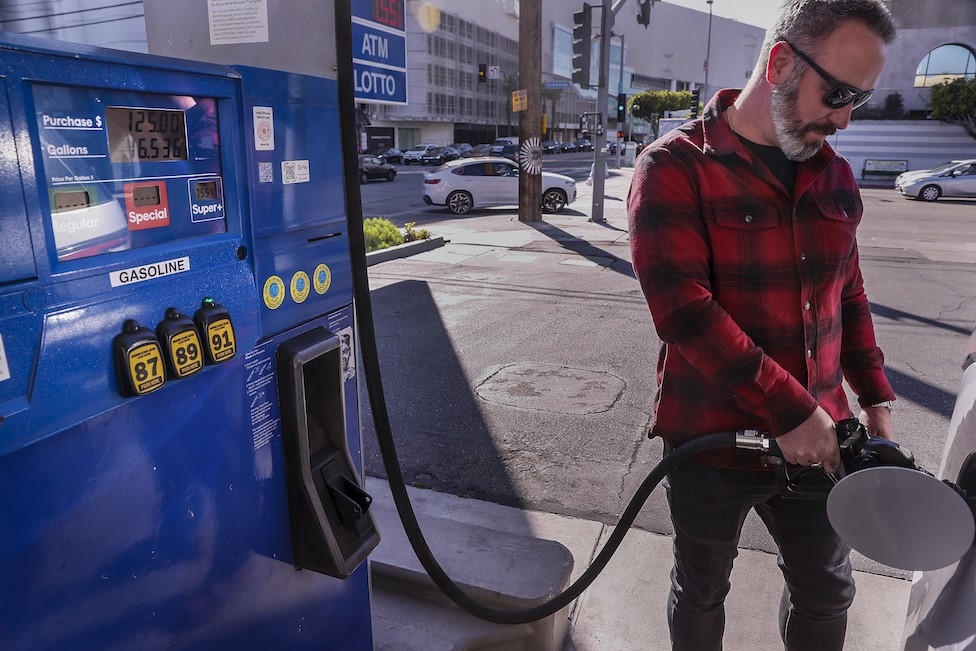Ukraine war: The perils of rising gas prices for Biden
- Published

Shortly after Joe Biden landed at a Navy airfield in Ft Worth, Texas, on Tuesday he posed for a photograph with the assembled military officers there to greet him. Moments like that are great for the travelling press, because it gives an opportunity to shout questions at a president who is notoriously press-averse.
"Mr President, do you have a message for the American people on gas prices," a journalist asked.
His reply was one of those lines you could practically hear in a Republican attack advert as he spoke them: "They're going to go up."
The next question-and-answer didn't really help, either.
"What are you going to do about it?"
"Can't do much right now. Russia is responsible."
Russia's invasion of Ukraine has put the president in a difficult situation domestically. He's under increasing pressure to tighten the economic vice around Vladimir Putin, but the most powerful steps will have collateral damage on American consumers. Rising gas prices, which are on stark display at the petrol stations on practically every corner in the US, are just the most tangible evidence of that.
Nevertheless, shortly before departing for Texas - a trip where he planned to discuss the long-term health implications for veterans of America's recent wars - Mr Biden announced that the US would ban the importation of Russian fossil fuels, rising petrol prices be damned.
Mr Biden's announcement Tuesday morning shouldn't have come as much of a surprise. The US Congress was preparing legislation that would have imposed a similar ban - essentially forcing the White House's hand.
Now, however, the Biden administration will have to face the consequences of the move, in the form of higher energy prices and more instability in a national economy already beset by pandemic-related imbalances.

War in Ukraine: More coverage
OCCUPIED CITY: 'We are not co-operating'
RUSSIA MOTHERS: 'How do I get my soldier son back?'
EXPLAINED: Why has Putin invaded Ukraine?
IN DEPTH: Full coverage of the conflict

Even before Mr Biden's Ft Worth tarmac statement, Republicans were sharpening their attacks on the Democrats, with an eye to the mid-term congressional election just seven months off.
While conservatives in Congress were among those pressing for Russian oil sanctions, that didn't prevent Republican Party Chair Ronna McDaniel from issuing a statement on Tuesday accusing Mr Biden and the Democrats not caring about the soaring petrol prices - and making the situation worse.
Mr Biden made a deliberate effort to defuse some of these attacks during his White House speech, noting that his policies weren't limiting domestic energy production and that environmental regulations, rather than a hindrance, were a means to make the US more energy independent.
"It's simply not true that my administration or policies are holding back domestic energy production," he said. "Even amid the pandemic, companies in the United States pumped more oil during my first year in office than they did during my predecessor's first year."
Recent public opinion surveys suggest Mr Biden is enjoying at least a slight boost in his approval ratings, evidence of a possible rally-around-the-flag effect among Americans - and that many Americans are willing to pay more at the pump to help stop Russian aggression.
The test for Mr Biden will be to convince voters that when those economic burdens become a reality, and they last for months not days, it is still a price they are willing pay to stop the tragedy playing out halfway across the world.
